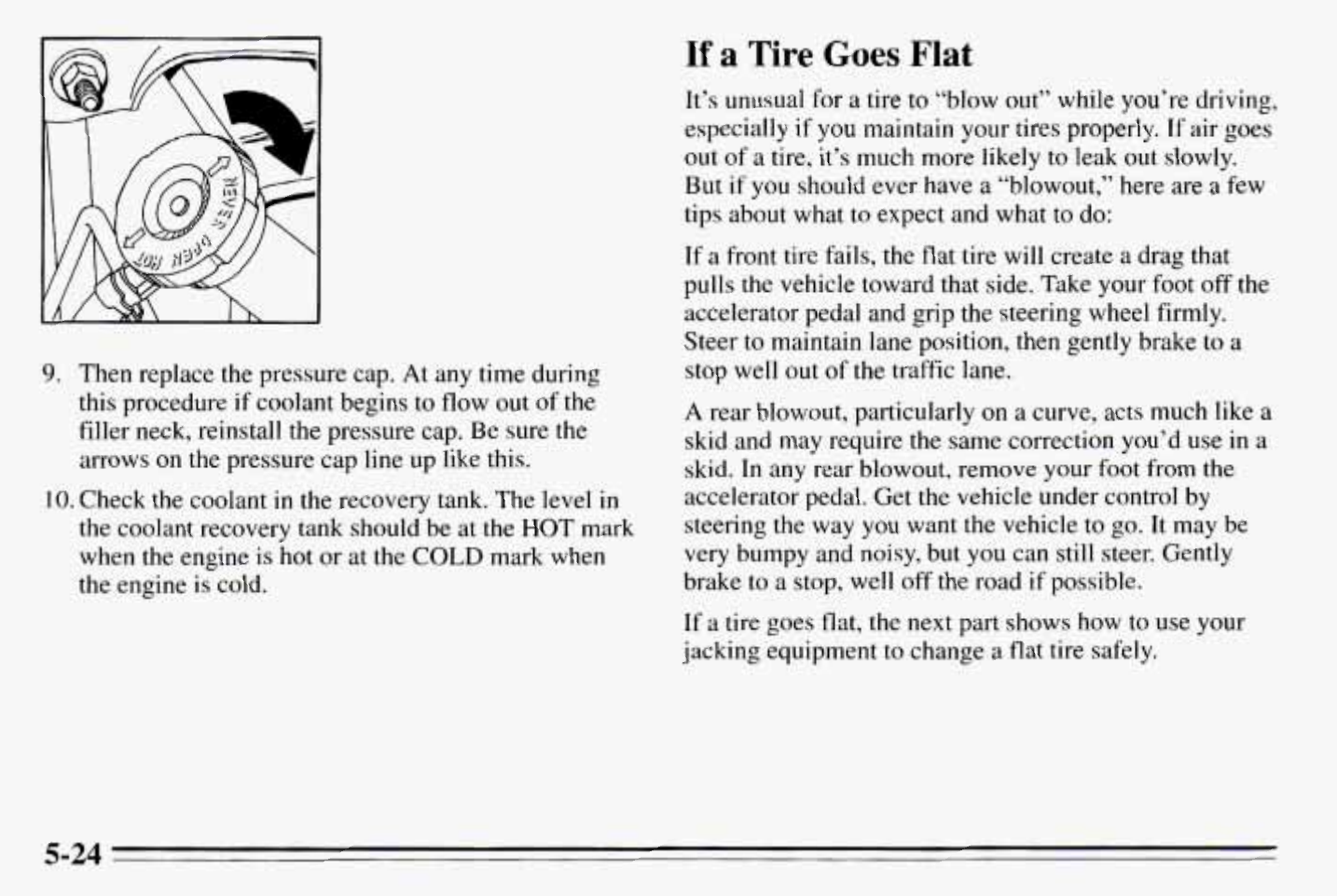
If
a
Tire
Goes
Flat
9.
Then replace the pressure cap. At any time during
this procedure if coolant begins
to
flow out
of
the
filler neck, reinstall the pressure cap. Be sure the
arrows
on the pressure cap line up like this.
10.
Check the coolant
in
the recovery tank. The level
in
the coolant recovery tank should be at the HOT mark
when
the
engine
is
hot
or at the COLD mark when
the engine
is
cold.
It’s unusual for a tire to
“blow
out”
while you’re driving,
especially
if
you maintain your tires properly.
If
air goes
out
of
a tire,
it’s
much more likely to leak
out
slowly.
But if
you
should ever have a “blowout,” here are a few
tips about what
to
expect and what
to
do:
If a front tire fails,
the
flat tire will create a drag that
pulls
the
vehicle toward that side. Take your foot
off
the
accelerator pedal and grip the steering wheel firmly.
Steer to maintain lane position, then gently brake
to
a
stop well out
of
the traffic lane.
A
rear blowout, particularly on a curve, acts much like a
skid and may require the same correction you’d use
in
a
skid. In any rear blowout, remove your foot
from
the
accelerator pedal. Get
the
vehicle under control by
steering the way you want
the
vehicle to go. It may be
very bumpy and noisy, but you can still steer. Gently
brake to a stop,
well
off the road if possible.
If a tire goes flat, the next part shows how
to
use
your
jacking equipment to change a flat tire safely.
5-24


















